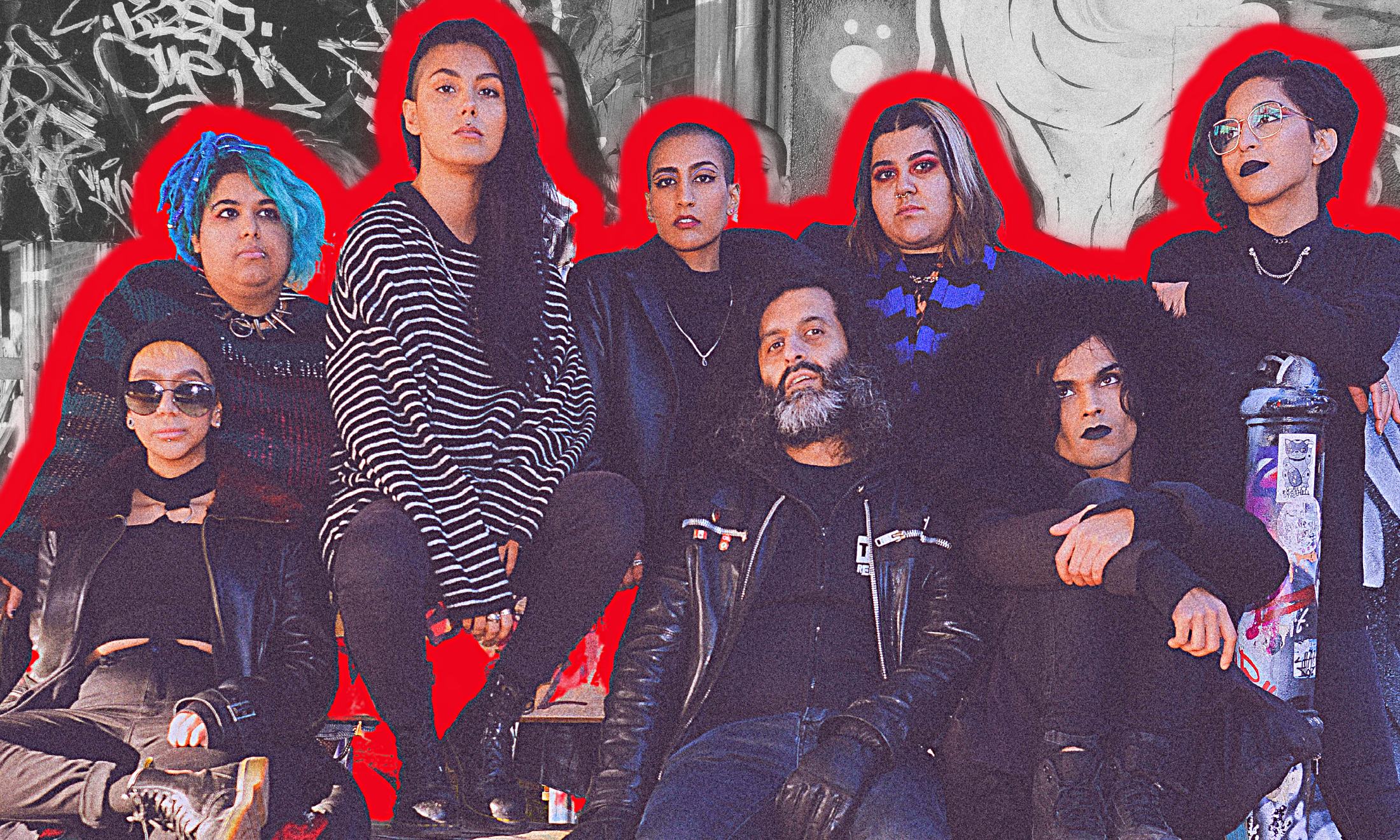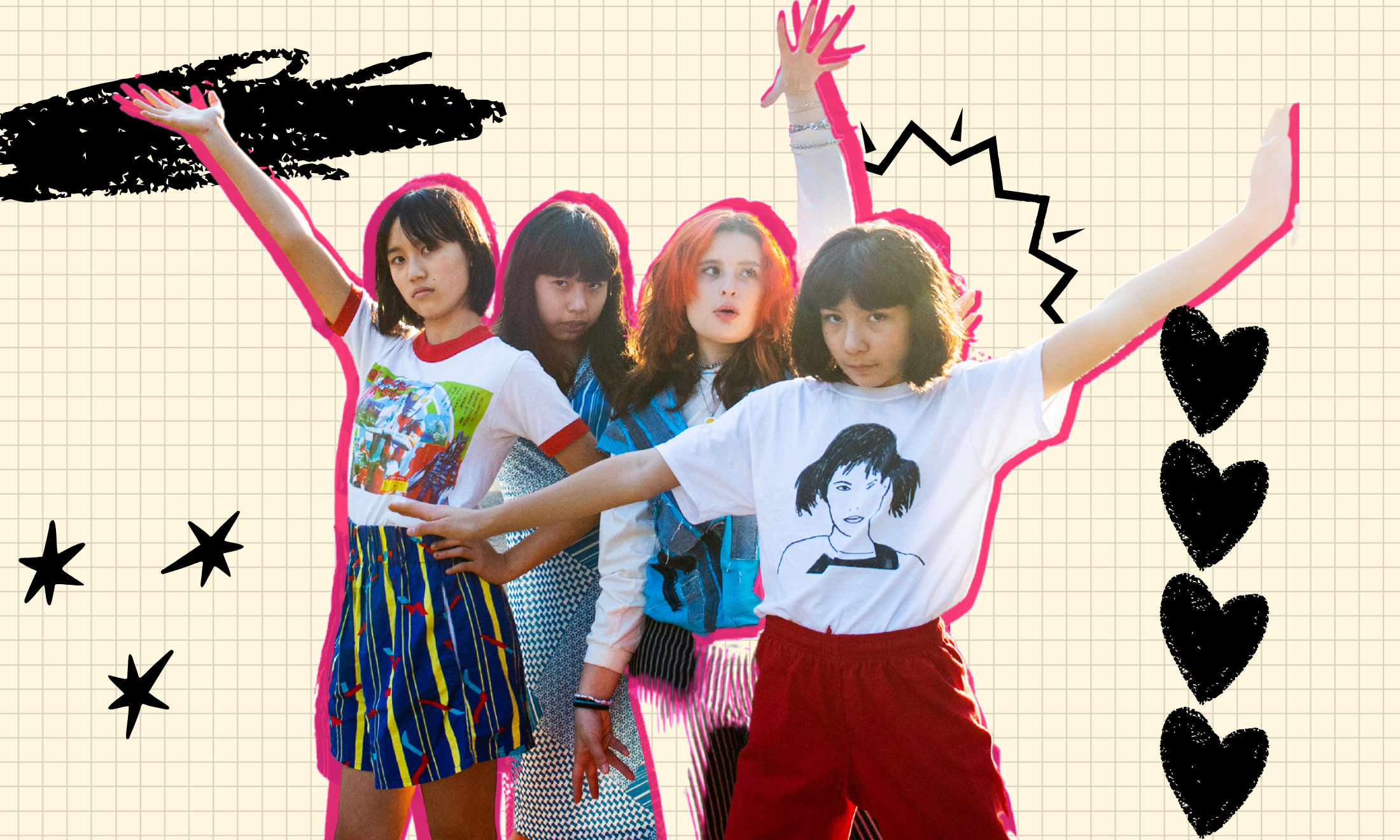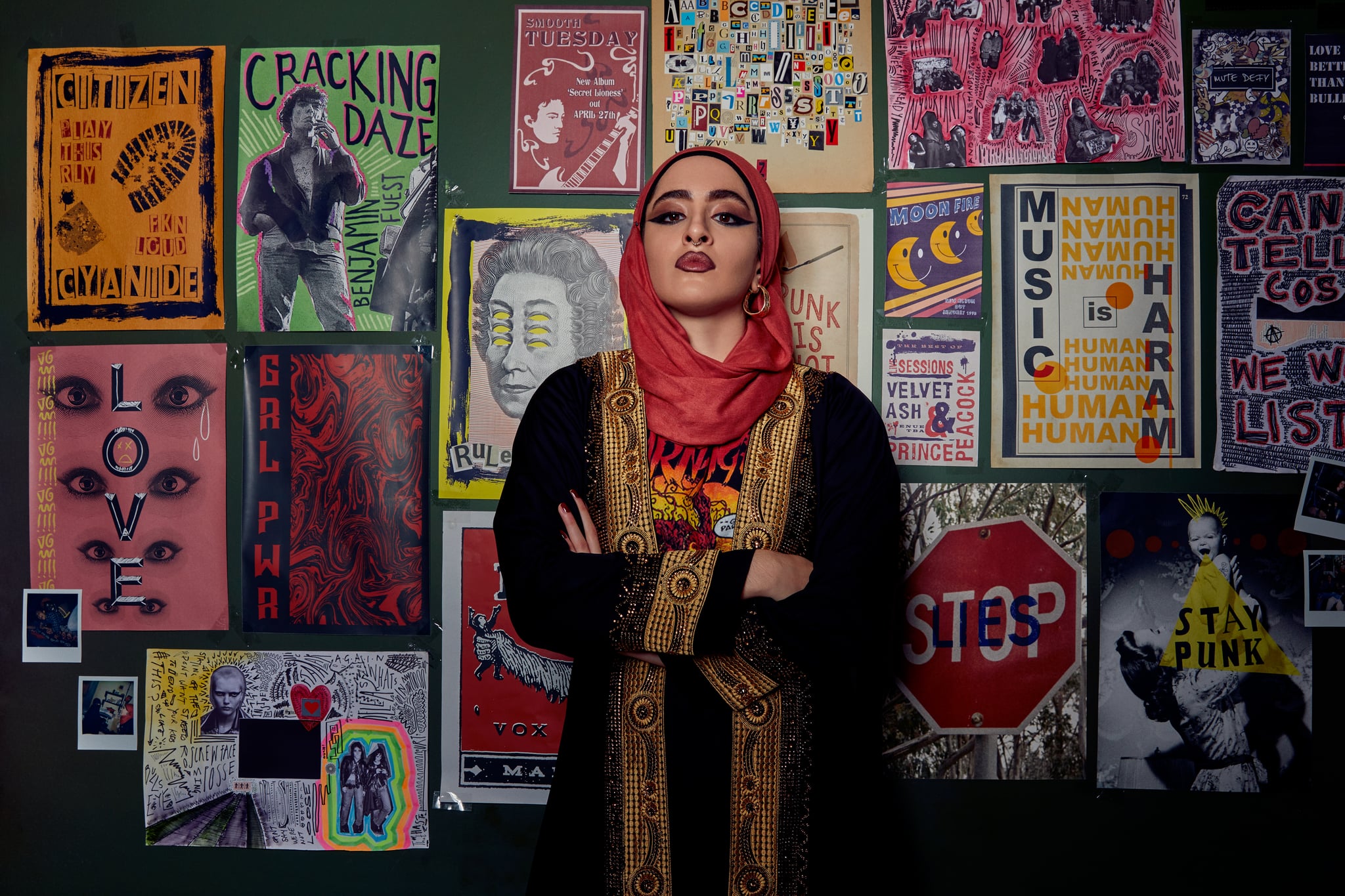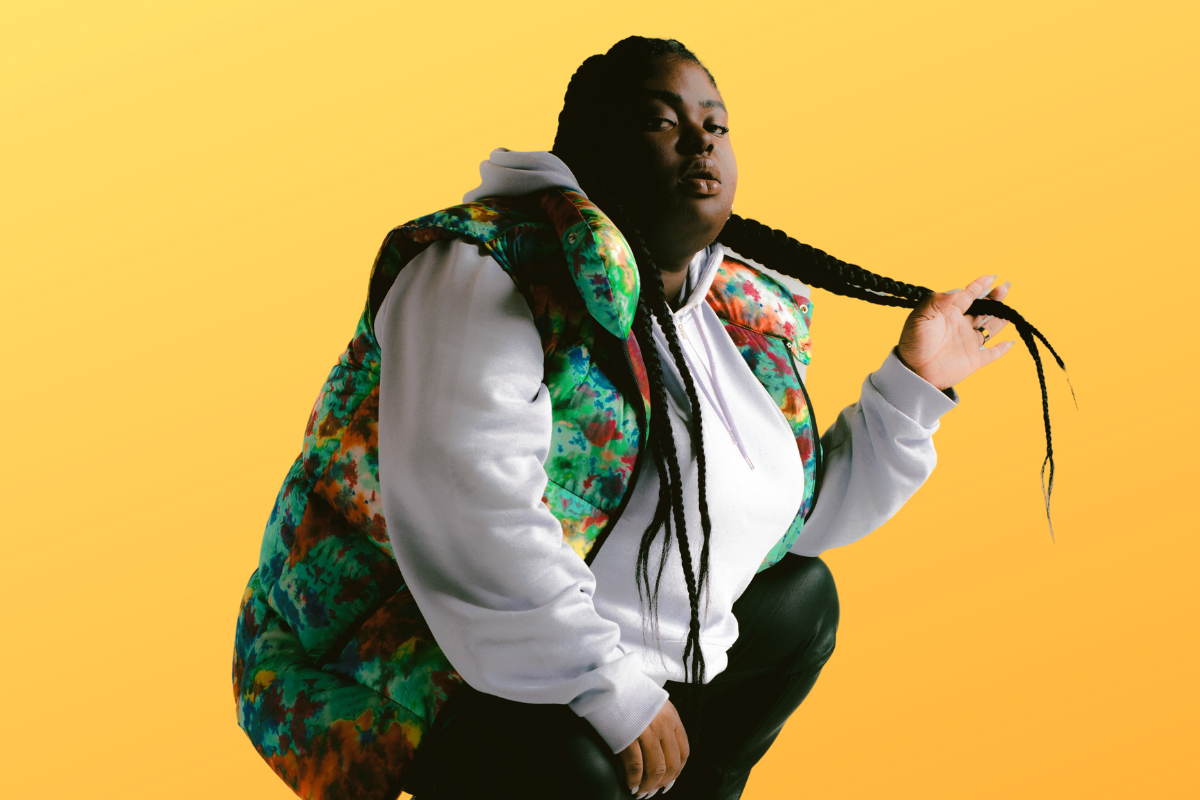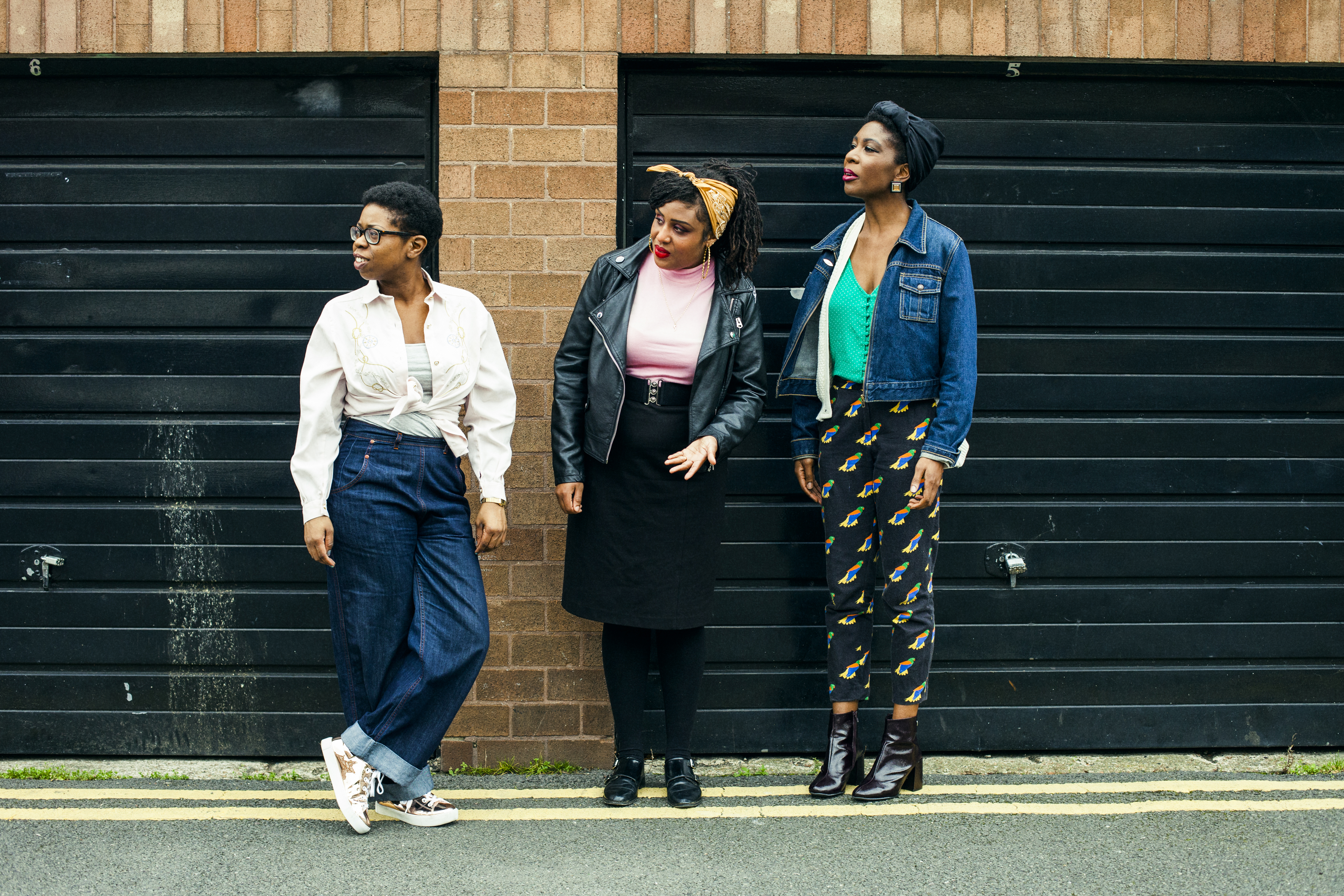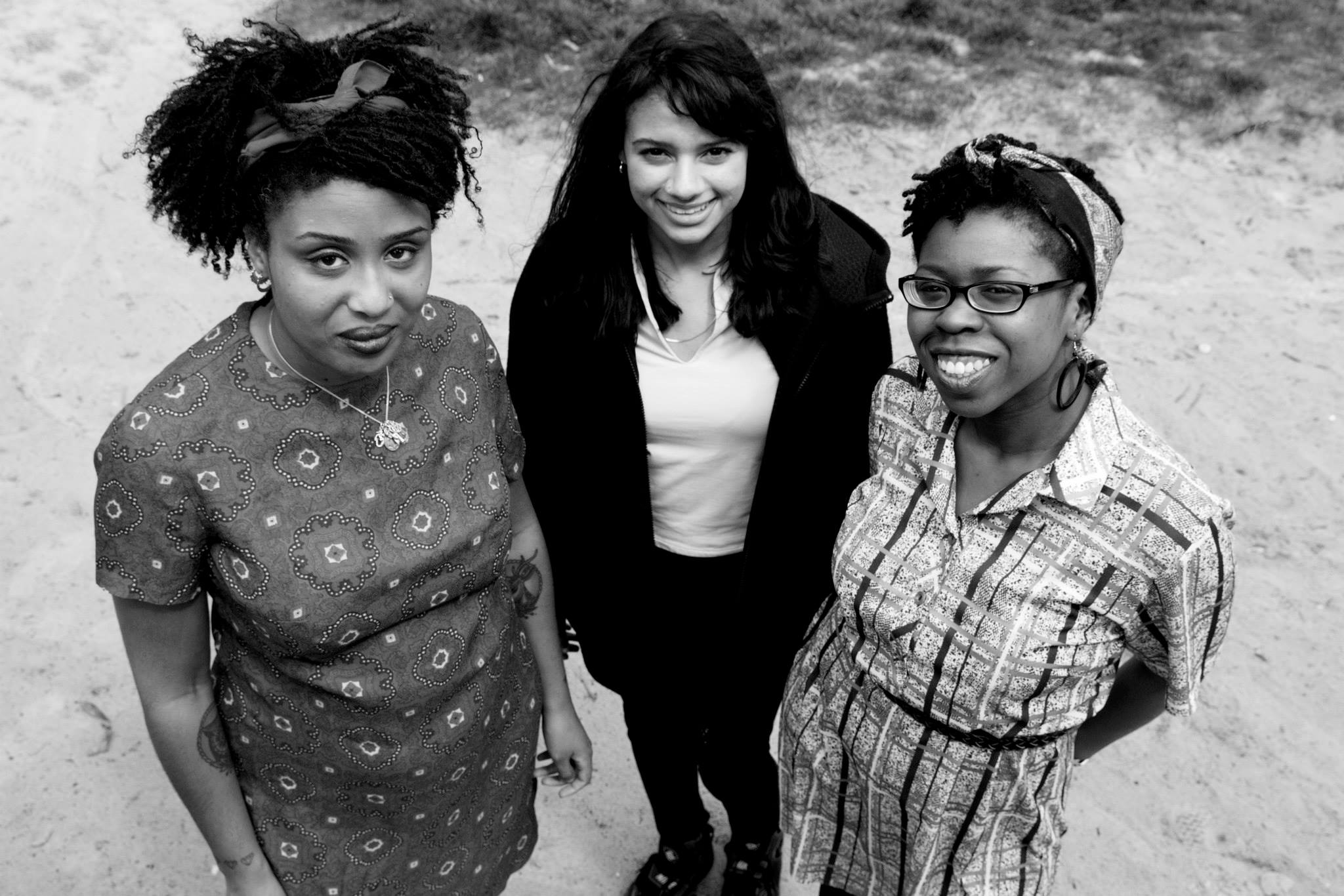
‘A Black Rock Symposium’ preview: interview with Big Joanie’s Chardine Taylor-Smith
Olamiju Fajemisin
13 Jan 2017
As part of the London Short Film Festival programme, Chardine Taylor-Smith, drummer of the band Big Joanie, will be hosting a panel on black identity politics in punk music after a screening of “Bad Brains: Live at CBGB 1982”. This Black Rock Symposium will be followed by a Big Joanie performance. I caught up with Chardine to talk about punk music, black feminism, and Big Joanie ahead of their live set this Friday.
Big Joanie played their first gig towards the end of 2013 at First Timers festival, an event specifically curated to showcase new bands with female and non gender conforming members. None of the members of Big Joanie are classically trained, rather, they’re self taught and have a very distinctive sound. Chardine listed a few figures who helped hone her passion and shape this sound. She named Elizabeth Cotton, “a black folk blues player who plays her guitar in her own style which creates her own sound”. All of the band’s members were relatively new to their instruments when they formed but to Chardine this posed no problem. “The great thing about punk is that it’s okay to be shit for a while. People are cool and accept that you are learning.” Chardine elaborated on this point in a more general sense, highlighting how black women are often under undue societal pressure, “we have such high expectations put on us when it comes to creating anything that we don’t allow room for failure”. The members of Big Joanie dove in at the deep end of punk and taught themselves everything. They were able to instinctively formulate a style of their own. Chardine put it simply, “being taught shouldn’t be a barrier to creating music…whatever we create in a world that is trying to oppress our very existence is relevant”.
Chardine’s influences include many household names. She listed many woman who have become masters in their field, women such as Pauline Black and Poly Styrene, as well as icons Patti Smith and Joan Jett. “I think it’s important to take ideas from a variety of sources and try to dram them within your own experience.” She continued to say, “the same goes for my feminism, mostly centered around the work of black women”. Again, Chardine listed women such as Audre Lorde, bell hooks, and Olive Morris. She also named Jo Spence, a working class white woman creative, as having inspired her, emphasising the importance of her social standing by saying, “I have little to no interest in the opinions of white middle class women”.
Punk has always been an adamantly political genre, with bands using performance as a tool to convey certain (usually political) messages. An infamous example of protest punk rock would be the 2012 Pussy Riot performance in the Cathedral of Christ the Saviour, Moscow, and the band’s subsequent trial. Chardine clearly argued that Big Joanie’s music is a device with which socio-political change can be instigated. “Music has played a central role in a lot of movements and I would hope in the future, people will look back and find our band and say that we are part of a legacy of some sort.” When conversation turned to decolonisation of the punk genre, Chardine pointed me in the direction of the band’s guitarist and vocalist, Steph Phillips. Steph works with Decolonise Fest, an event which “centres black and brown alternative music”.
“Our aim is to create music that we and other black people like us relate to first”, Chardine explained. When I asked if one of the bands aims was to decolonise the genre, Chardine turned this notion on its head and replied, “we do not exist as a band to do the work white punks should be doing themselves. By existing we are already decolonising the genre”.
I had always understood the more mainstream components of punk to have been historically dominated by white artists who are more often than not male. As we spoke, Chardined indicated the several different punk scenes, reminding me that Big Joanie “play on the one that is mostly woman and queer led”. Instead of finding challenge in carving a space for Big Joanie in punk, Chardine told me that the “current feminist punk scene has been welcoming”. However, the issue of tokenism was raised. Big Joanie belong to a small subsection of the genre, and because of this, ”the only challenge is people seeing us as a novelty or a tick box exercise”. Chardine continues in layman’s terms. “We are a band that play music we love. We love punk music. We are black feminists creating music for other black punky feminists and their friends.” Big Joanie might not fit the mental image cast in the average person’s mind upon hearing the phrase “punk rock”, but this doesn’t make them at all token. The arbitrary attributes separating them from the likes of The Sex Pistols don’t in anyway detract from the fact that they’re a black, feminist punk rock band killing the game, who use their music as a political vessel.
As discussion turned to the influence of Chardine’s youth, the notion of not being perceived as token recurred. “Growing up in a mostly white area made me feel like an outsider and therefore punk spoke to me in some way”, she said. “But I have met and know plenty of black kids who live in majority black places who have the same tastes. So I can only say that I related to the punk subculture as I thought it was cooler than everything else.” There’s nothing niche about Chardine’s affinity for punk culture. Just as there’s nothing niche about any black person listening to or creating punk music. She continued, “there’s this idea that black people like all the same things and that anything outside of this quite narrow perception of blackness needs an explanation. It doesn’t. I like what I like”. Black youth needing to validate their interests and hobbies is a damaging cycle that needs breaking. Being labelled as token often creates a feeling of otherness – the ethos of Big Joanie counteracts this.
If you can’t wait until later in the year for Big Joanie’s next single and album release, you can expect to see them on a UK tour at the end of February. Catch them at LSFF 2017: A Black Rock Symposium: From Bad Brains to Big Joanie at Hackney’s Moth Club on January the 13th.

